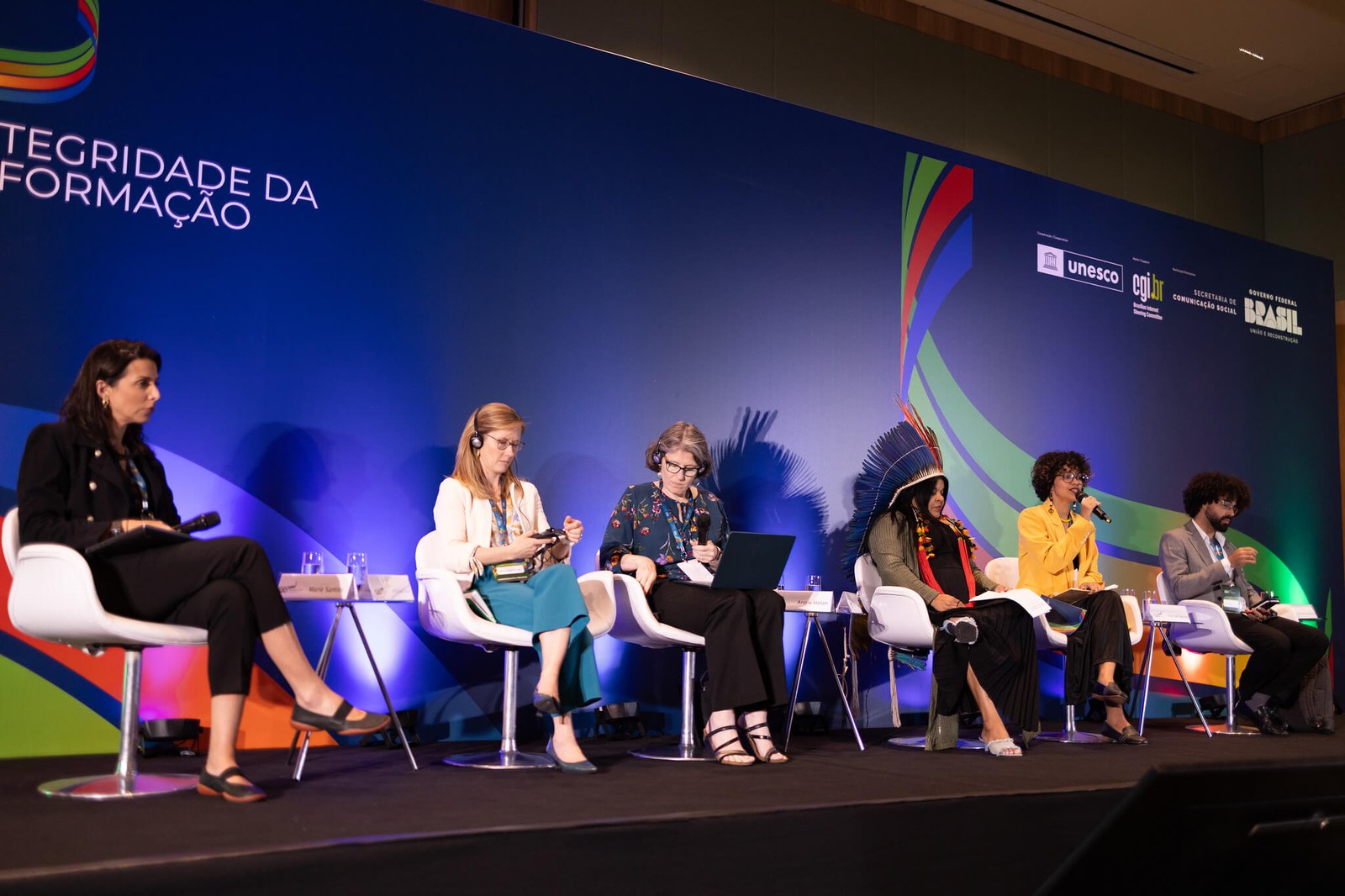Government, academia and civil society discuss strategies to tackle misinformation about climate change
Experts highlight the importance of information integrity to tackle disinformation on climate change in a panel at the side event of the G20 Digital Economy WG in São Paulo. The topics ranged from the dissemination of information about indigenous populations to the need for more widespread and accurate journalistic coverage of environmental issues.

Information integrity as key to tackling the climate crisis was the subject of a panel at the G20 Digital Economy working group event on Wednesday, May 1, in São Paulo. Sônia Guajajara, minister of Indigenous Peoples of Brasil (MPI), said that providing quality information is fundamental to combating the narratives of misinformation that spread discrimination against indigenous people in the country, the main protectors of biodiversity in the world.
"Society's lack of knowledge about who indigenous peoples are means that any lie spread is taken as truth. The MPI is working to develop strategies, through education, health and the press, to provide truthful information about who the indigenous peoples are, where they are and what they are doing to contain not only urban violence, but also the attacks within our territories, and to preserve biodiversity," explained the minister.
João Guilherme Bastos dos Santos, director of analysis at Democracia em Xeque, spoke about strategies to combat misinformation about the impacts of climate change. According to Santos, Brasil still has areas he called "news deserts", where access to information is hard. In these cases, he said, actions must involve understanding the reality of each group. "We need to go beyond the concept of denying what is on the internet to understanding how it is interpreted in each culture," he stated.
According to Angie Holan, director of the International Fact-Checking Network, just as there has been an increase in denialism and misinformation about climate change, methods of verifying information have also improved in recent years. Holan highlighted the role of journalism in helping to curb the spread of lies and false content. "There is a lot of denialism about climate change, but it seems to be receding. Journalism is extremely important to help create an individual perception of the effects of extreme weather," he considered.
Google's Global Director of Sustainability and Partnerships, Antonia Gawel, said that the platform's responsibility is to provide the right kind of information, which can drive the creation of public policies. She also said that searches related to climate change have increased in recent years and are "a constant and consistent trend". "We want people to find quality information that provides scientific perspectives on the effects and what can be done to contain the climate crisis," she said.
Marie Santini, a PhD professor at the Federal University of Rio de Janeiro (Brasil), presented the results of a news coverage analysis of the environmental issue in Brasil, revealing that both the communication ecosystem and the traditional press focus more on economic issues than on the social impacts of climate change.
"The big problem is that we are not dealing with narratives, but with a systemic problem that is not isolated. It starts with the precariousness of press coverage with regard to the environmental issue. Crises appear because the ground is prepared for narratives to take shape," Santini advocated. She pointed out that there are other issues that drive misinformation on the subject, such as false content disseminated by extreme right-wing politicians and organizations linked to agribusiness.
Moderated by Hannah Balieiro, executive director of the Mapinguari Institute, the participants also listed the roles of civil society, universities and governments in working together to combat climate misinformation. The panel recording is available in full on the G20 Brasil Youtube.